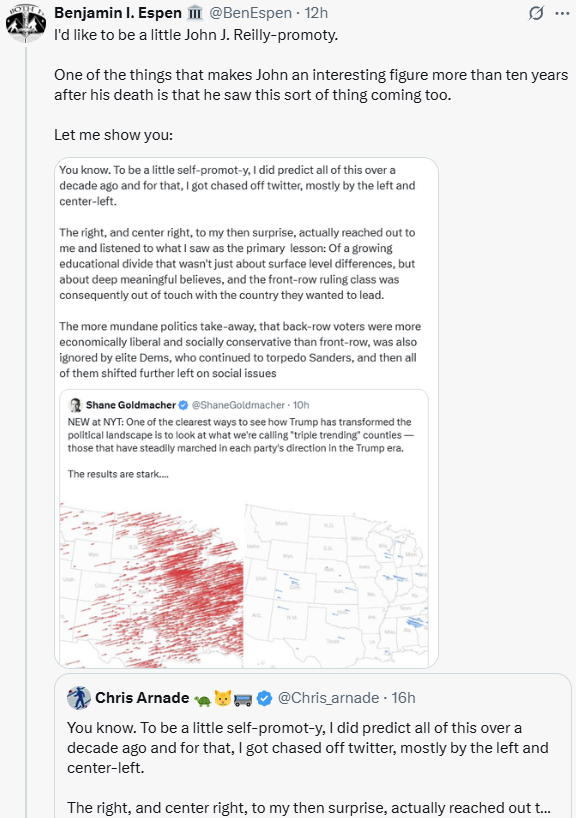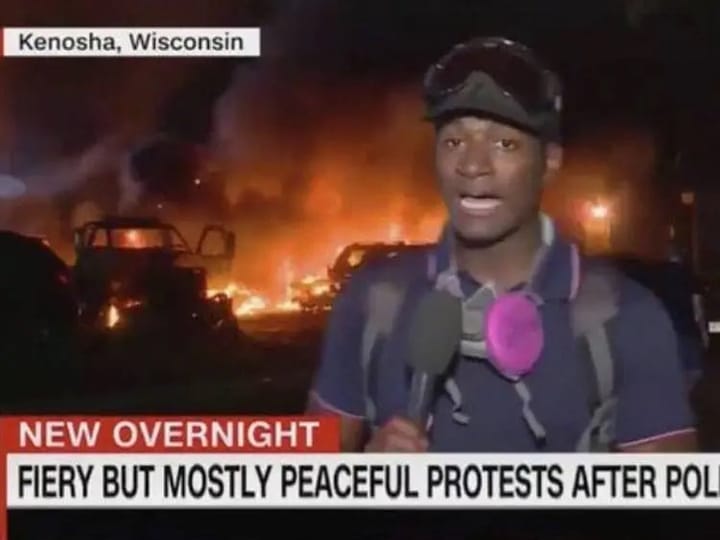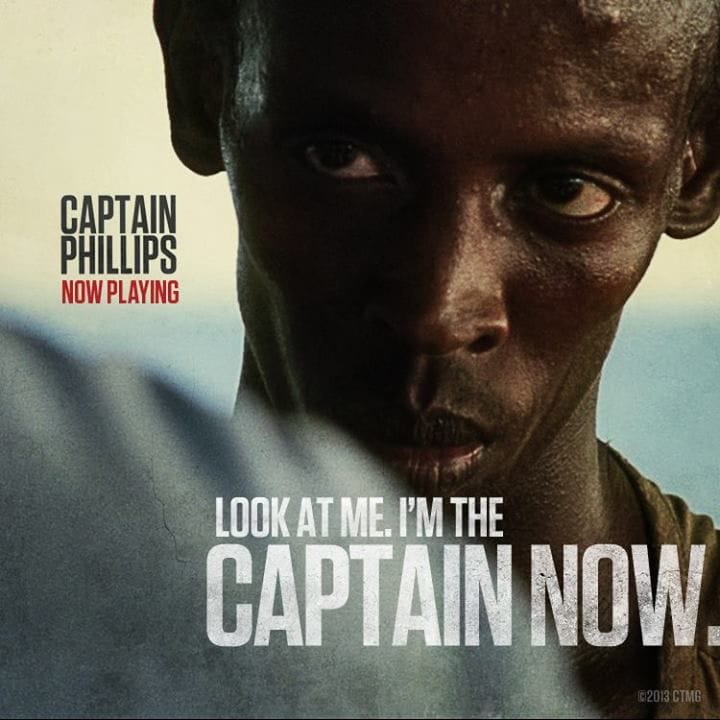The Long View 2004-04-30: Some Protests
I find myself sympathetic to John's advocacy for English spelling reform, but this is one of those ideas that just cannot gain any traction at all.
Some Protests
With suitable adjustment for local topography, every child has been asked some version of my father's oft-repeated question: "And if your friends jumped off the top of the Empire State Building, would you do that too?" And any reasonable child would answer that question with a "yes." What brings this to mind is the publicity for two upcoming disaster films. Film producers seem willing to keep each other company, no matter the genre.
One actually takes the form of a miniseries about a West Coast earthquake, to begin airing on NBC on May 2. It has attracted some unfavorable comment, such as Scientists, Government Decry NBC Miniseries '10.5'. Several major quakes are likely in various parts of the West Coast at no distant future, but not even all together would they do the Godzilla-level damage that this series depicts.
Actually, I have already seen some of the promos for the series. The special effects are good of their kind; the landmarks collapse quite balletically. There are two problems, though. The first is that the destruction will have to be interrupted now and again by acting, which is unlikely to be as interesting. Second, I saw quite enough surreal destruction on 911. I marvel that anyone would make a film built around images of collapsing buildings.
Earthquakes are one thing; floods and blizzards are another. The special effects and premise are far more clever in the climate-disaster film that premiers on May 28, The Day After Tomorrow (which is not to be confused with The Day After, the 1983 TV movie about a nuclear war). The film features a climate flip that goes from explosive global warming to sudden glaciation. The film has been portrayed as a political issue, because the mere mention of global warming is supposed to cast the Bush Administration in a bad light. I suspect, though, that it would be easier to make a political point by portraying a less catastrophic future. People can identify with a weirdly hot summer. In contrast, a picture of snow up to the 20th floor of the Chrysler Building is just art.
I noticed an odd point about the film's website. There are language options in Chinese, English, French, German, Japanese, and Portuguese. However, for English, there are two choices: "English" and "English Outside North America." This was, presumably, intended to accommodate the minor spelling differences between American and British English. (Those Canadians who prefer the British conventions must shift for themselves, I suppose.) There are also two options for Spanish. The odd thing is that there is only one option for "Chinese," which really does have two orthographies. The choice between them is a political and cultural signal.
* * *
Speaking of orthographic reform, readers will be pleased to know that this year's Scripps Howard National Spelling Bee will be picketed by the Simplified Spelling Society and the American Literacy Council. (I am actually a member of the board of the latter organization, but I am chickening out on the picketing.)
This has been done before. It's not so much picketing as gentle lobbying for spelling reform. Again, I find the argument for reform unanswerable. There is something deeply flawed with an orthographic system that's whimsical enough to be a competitive sport. The protesters take care not to discourage the kids. The spelling-bee participants have a working knowledge of etymology and phonetics that would be a credit to any philologist. The problem is that kids should not have to know a lot of implicit philology to write their own language.
* * *
Why do we still read The New York Times? Well, you have to read some national paper every day. Major newspapers are important because they tell you things would not have thought to ask. The modern habit of focusing your news intake with agents and filters is stultifying. The Times is still a useful source of general information. However, the fact is that, these days, I read it for much the reason I used to listen to Radio Moscow in the 1960s: to see what the Politburo wants you to think.
In the April 29th issue, for instance, there were two stories, one under the other, on Page E1. One was about a television documentary that dealt, in the tone of revealing a scandal, with the role of religion in President Bush's administration. The caption was "Understanding the President and His God." The other story, the same size and immediately beneath the first one, was captioned "A Flimmaker Inspired by Lobotomy."
That is funny, but I don't think the Times understands who the joke is on.
* * *
This is not to say that religion does not merit a little razzing. Here's a good place to start: a coffee-table book about the the film, The Passion of the Christ, with Mel Gibson himself listed as the author. How long until the action figures are on the market, I wonder?
* * *
Readers have emailed me to ask what I mean by saying that nanotechnology is a category mistake. An example is this recent story about a "chemical computer." Actually, it's an enzyme-DNA ensemble that shows promise as a way to deliver anti-cancer drugs very precisely. This looks like an important development. However, I don't quite see how it makes things clearer to call these molecules "computers." This is chemistry, not mechanical engineering.
Copyright © 2004 by John J. Reilly



Comments ()